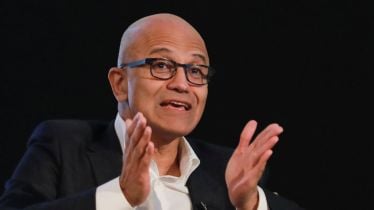Microsoft Employees are feeling dejected and demotivated. This is primarily due to the fresh round of layoffs announced by the tech-giant recently, moreover these were not the only layoffs this year. The Tech Industry is already facing a turbulent time due to the arrival of advanced Artificial Intelligence Models or LLM models. This has resulted in Microsoft automating several jobs and laying off thousands of workers globally.
Fear among Microsoft employees?
The employees who are currently working at Microsoft too feel something different. According to a Verge report many Microsoft employees remain in constant fear of being laid-off, while some feel scared that Microsoft’s AI push might replace them with an AI bot.
Microsoft’s Position in the AI race
Meanwhile the Microsoft CEO is facing increasing pressure to gain some momentum in the AI race. In which Open AI, Meta and other Big-Tech firms are making strides. Therefore Satya Nadella is slowly reducing the workforce to divert funds and attention.
Amidst all of this the Microsoft is looking left,right and center to poach the best minds in the AI industry from competitors. The company is ready to splurge if ncessary. The pressure on Microsoft to reinvent itself in the AI era is only growing. Last month, billionaire Elon Musk announced that his latest AI project was called “Macrohard,” a tongue-in-cheek jab squarely aimed at the tech giant
As The Verge reports, the possibility of Microsoft being made obsolete as it races to keep up is something that keeps Nadella up at night.
DEC Case Study!
During an employee-only town hall last week, the CEO said that he was “haunted” by the story of Digital Equipment Corporation, a computer company in the early 1970s that was swiftly made obsolete by the likes of IBM after it made significant strategic errors. Nadella explained that “some of the people who contributed to Windows NT came from a DEC lab that was laid off,” as quoted by The Verge, referring to a proprietary and era-defining operating system Microsoft released in 1993.
While it remains to be seen how successful Musk’s attempts to simulate products like Microsoft’s Office suite using AI will turn out to be, Nadella said he’s willing to cut his losses if a product were to ever be made redundant. “All the categories that we may have even loved for 40 years may not matter,” he told employees at the town hall. “Us as a company, us as leaders, knowing that we are really only going to be valuable going forward if we build what’s secular in terms of the expectation, instead of being in love with whatever we’ve built in the past.”
For now, Microsoft remains all-in on AI as it races to keep up. Earlier this year, Microsoft reiterated its plans to allocate a whopping $80 billion of its cash to supporting AI data centers — significantly more than some of its competitors, including Google and Meta, were willing to put up.
Open AI and Microsoft Partnership
Complicating matters is its relationship with OpenAI, which has repeatedly been tested. OpenAI is seeking Microsoft’s approval to go for-profit, and simultaneously needs even more compute capacity for its models than Microsoft could offer up, straining the multibillion-dollar partnership.
Last week, the two companies signed a vaguely-worded “non-binding memorandum of understanding,” as they are “actively working to finalize contractual terms in a definitive agreement.” In short, Nadella’s Microsoft continues to find itself in an awkward position as it tries to cement its own position and remain relevant in a quickly evolving tech landscape.
